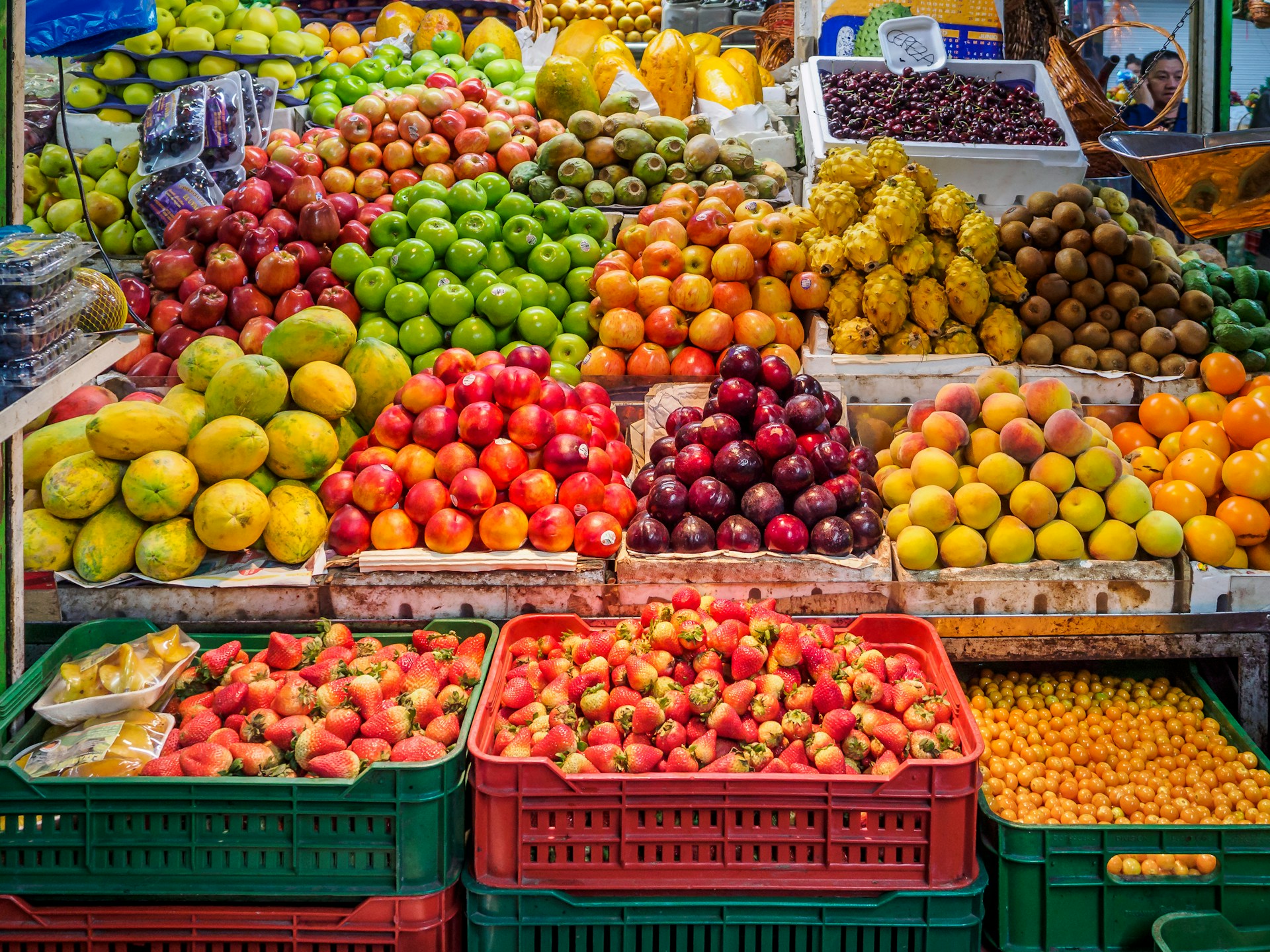The significant shift towards sustainability in the retail sector has reinforced the importance of adopting responsible sourcing strategies.
As consumer demands for ethically sourced products grow, retailers find themselves under an ethical, environmental, and economical obligation to meet these expectations.
Establishing sourcing strategies, especially for produce retail, can prove one such effective measure.
However, the complexities involved in implementing sustainable sourcing remain a perennial challenge for retailers.
This article delves into suggesting pragmatic methodologies to overcome these barriers, while accentuating the associated benefits.
Herein, we also aim to provide a comprehensive understanding of the concept of sustainable sourcing and its practical implications in produce retail.
Contents
Sourcing Strategies For Sustainable Produce Retail
1. Partner with Local Organic Farmers and Co-ops
In the increasingly eco-conscious world, more and more companies are seeking to create ethical and sustainable sourcing strategies for their products. One of the most effective ways to achieve this is by partnering with local organic farmers and co-operatives (co-ops).
Choosing to partner with local organic farmers is not just a sound business strategy; it is also a vital initiative that can significantly contribute to environmental sustainability.
Working closely with local farms and co-ops means that produce is locally sourced, which significantly reduces the carbon footprint associated with the transportation of goods.
Local organic farmers also employ farming methods that are better for the environment.
These methods include refraining from using harmful pesticides and fertilizers that can contaminate soil and water, promote biodiversity, and maintain soil health.
Partnering with local organic farms also offers the assurance of having a steady supply chain of fresh and organic produce.
Co-ops, being member-owned businesses, are rooted in their communities. They are committed to ethical and sustainable practices, both in the way they cultivate their produce and how they manage their affairs.
These partnerships enable retailers to contribute positively to their local economies, supporting job creation and providing a fair income for farming communities.
This, in turn, can bolster the company’s image as a responsible and socially-conscious business, fostering loyalty and attracting customers who share these values.
Retailers can also benchmark their practices against the high standards co-ops uphold, pushing them to make improvements in other areas of their operations.
Moreover, collaboration fosters innovation. Working with local organic farmers and co-ops presents an opportunity to learn new farming techniques and understand emerging trends in organic farming.
This knowledge can be used to create a better product offering and to troubleshoot potential problems in the supply chain before they become critical issues.
In dealing directly with the growers themselves, it also becomes easier to monitor and certify the quality of the produce sold. This could lead to an enhanced reputation for quality, boosting customer trust and loyalty.
Finally, partnering with local organic farmers and co-ops can offer retailers the chance to engage in positive storytelling about their products. This can be a powerful way to connect with customers on a more personal level.
Implementing stringent sourcing strategies and partnering with local organic farmers and co-ops could pave the way for a sustainable and ethical way of doing business in the retail sector.
Taking this route might not always be easy or convenient, but it is a worthwhile investment that can lead to longer-term financial viability, an enhanced company reputation, and a healthier planet.
2. Implement fair trade agreements with global suppliers
Through fair trade agreements, a sustainable produce retailer can uphold ethical standards when sourcing commodities from international markets.
Adopting fair trade sourcing means ensuring that the producers involved receive a ‘fair’ price for their goods, which covers the cost of sustainable production and living.
This strategy helps producers in developing countries achieve better trading conditions and promotes sustainability.
The fair trade sourcing strategy provides an opportunity for sustainable produce retailers to add social, economic and environmental value to their brand.
Not only does fair trade support greater economic equity, but it also contributes significantly towards achieving sustainability standards that address the wider issues of global environmental degradation and economic disparity.
Under a fair trade agreement, the relationship between a supplier and a retailer goes beyond transactional, turning into a partnership founded on mutual respect and shared values.
This bolsters transparency and accountability since all the key aspects of trade, including prices, labor conditions, and environmental practices, are agreed upon and adhered to by both parties.
Moreover, this arrangement protects the rights and welfare of small-scale farmers and workers in developing countries who are often victims of conventional trade injustices.
A fair trade sourcing policy integrates small-holder farmers and agricultural cooperatives into international trade more effectively and constructively.
This approach encourages sustainable practices like organic farming and biodiversity conservation through its standards which are designed to favor the environment and the people.
For a sustainable produce retailer, entering into fair trade agreements enriches the supply chain by creating connections with more engaged and motivated suppliers.
Moreover, the retailer’s commitment to fair trade can stimulate customer loyalty by appealing to conscious consumers looking for ethically sourced products.
However, a retailer must remain vigilant and ensure fair trade commitments are upheld by employing regular audits and strict certification processes.
By fostering stronger relationships and trust with global suppliers, the retailer can guarantee the integrity and sustainability of its supply chain.
In essence, implementing fair trade agreements with global suppliers is a practical, impactful, and effective strategy to source sustainably for a produce retailer.
3. Develop in-house sustainable farming and production.
Developing an in-house sustainable farming and production system is essential for any retail company seeking to champion sustainability.
The process commences with procuring the right resources and infrastructure to set up a fully functional and efficient farm.
A key aspect to consider is the selection of land that is rich in nutrients and suitable for organic farming.
It’s also crucial to ensure proper waste management through recycling farm waste to enrich the soil, as well as use of compostable materials.
Investing in advanced farming technologies can lead to higher yields and better quality produce while maintaining sustainability.
Methods like hydroponics and aeroponics can be used to grow crops year-round , regardless of climate conditions, increasing the consistency of supply.
Moreover, the retail company can control pesticide use, ensuring only organic pesticides are used when absolutely necessary.
Thorough processes for pruning, watering, and fertilizing plants must be followed to ensure consistent quality and yield.
All these activities require trained manpower, hence employing experienced farmers and offering regular training sessions will be fundamental.
Notably, in-house farming and production allows for the reduction of carbon emissions associated with transport from farms to retail outlets, as the produce is grown and sold within the same vicinity.
By following these methods, the retail company assures its customers that it upholds the highest standards of sustainability.
In addition to the environmental benefits, developing sustainable methods of farming and production can also have important financial implications for a retail company.
By growing their own produce, retailers can control costs more effectively, thereby enriching their profits.
Overall, the development of in-house sustainable farming and production is a holistic approach that requires planning, investment, and commitment to sustainable practices.
However, the benefits far outweigh the challenges with retail brands experiencing improved customer loyalty and increased profitability.
The Bottom Line
Expanding partnerships with local organic farmers and co-ops is pivotal to ensuring the quality and sustainability of raw materials.
Taking a step further, adopting fair trade agreements when dealing with global suppliers guarantees equitable practices, promoting overall global sustainability.
Moreover, developing in-house sustainable farming and production strategies not only allows for control over quality and supply but also reduces environmental footprints.
This holistic approach, encompassing local and global partnerships, fair trade, and in-house sustainability, can greatly enhance business growth while ensuring responsible practices within the food industry.
This, therefore, underscores the critical role of sustainability for any forward-thinking enterprise, indicating business models that value the environment and fairness are undoubtedly the way forward.




